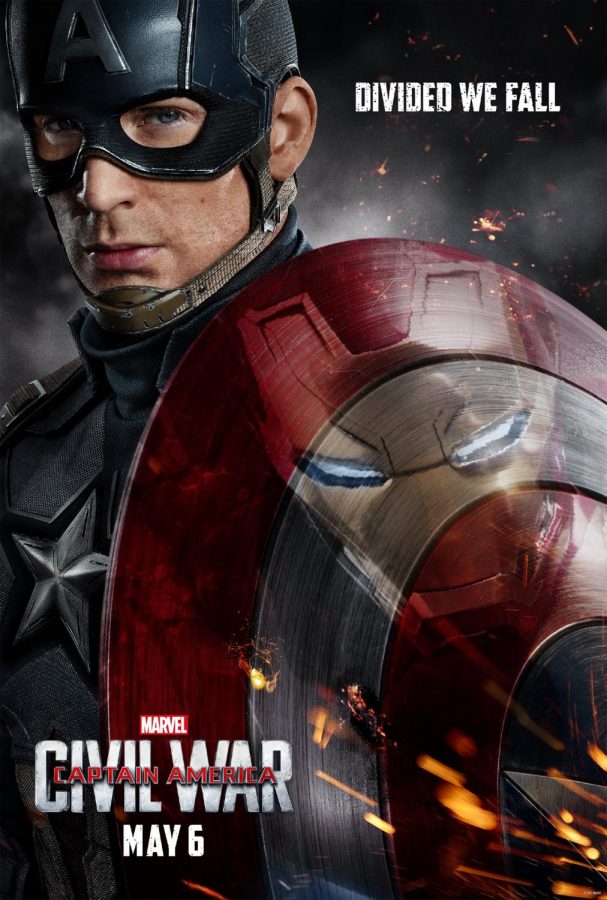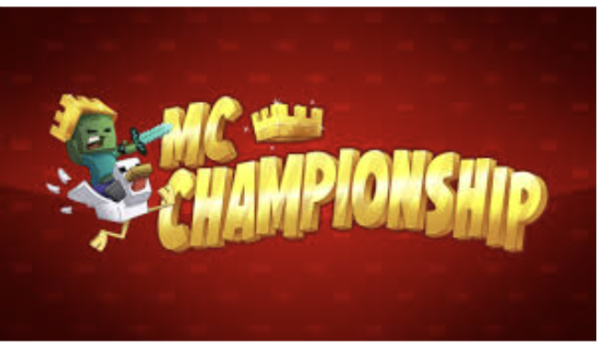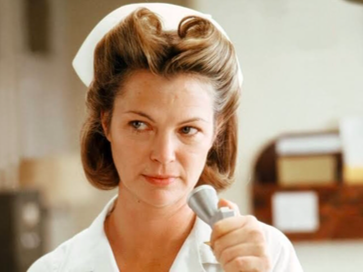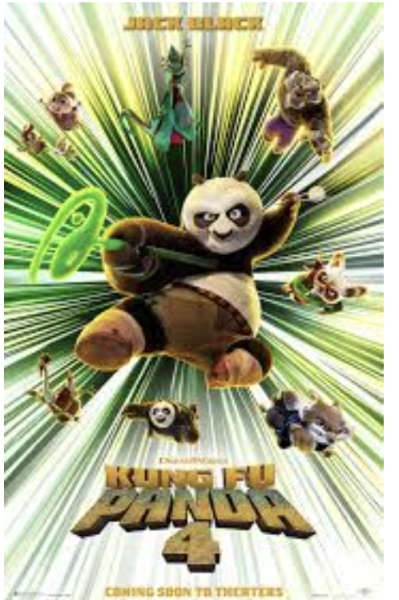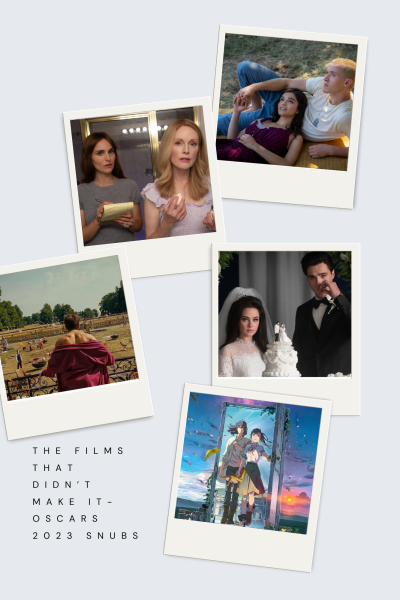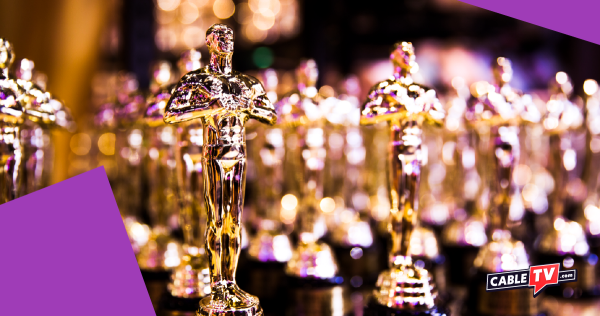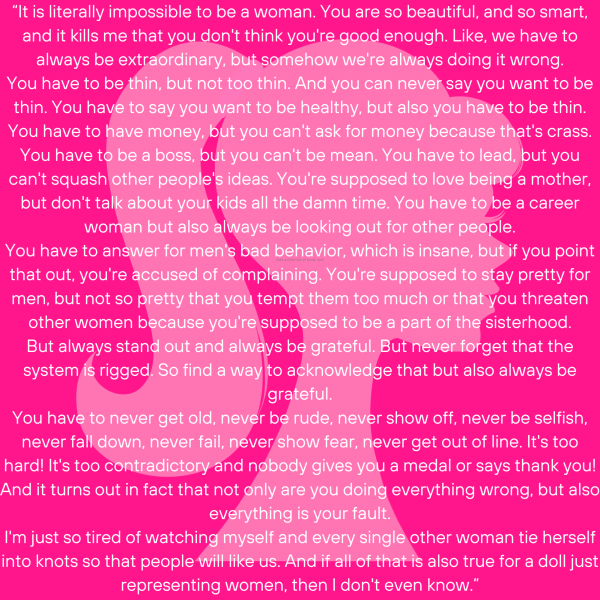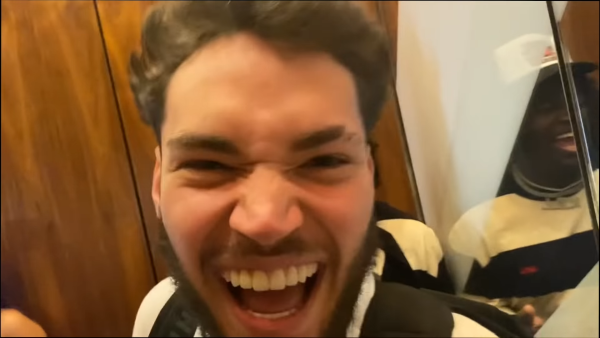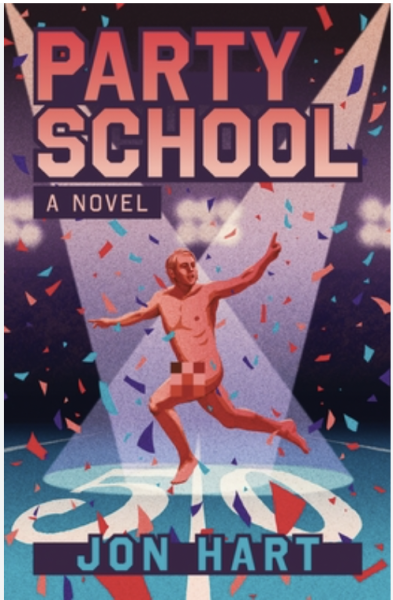Not all superhero movies are the same
To say that all superhero movies are the same is to neglect the intricacies within them.
Specifically, the Marvel Cinematic Universe presents superhuman films that explore different themes of morality and way of life that directly relate to life today. Each movie has a unique message and cannot be grouped under the generalization of “another superhero movie.”
For one, Captain America: The First Avenger explores national duty and patriotism. Steve Rogers selflessly puts his country and his men above his own interest (trying different draft offices, jumping towards the grenade), all the while defending them with a shield.
The shield plays a key part in the film – while other superheros gravitate toward hammers, giant green fists, metal suits, and scepters, Captain chooses one weapon that isn’t actually a weapon, and therefore shows the internal conflict he faces between sense of duty to his country and the value of life.
The conflict he faces transforms within the next movie, Captain America: The Winter Soldier, when he’s faced with his old, thought-to-be-dead best friend, Bucky Barnes (the Winter Soldier). While fighting against Hydra corruption throughout SHIELD, Cap faces the one enemy that haunts populations: the past. Exploring new connections after a tragic loss, all while trying to stay loyal to who he used to be before he became a super soldier, Cap faces a turmoil that goes beyond killing an enemy – killing a friend.
As Captain America Civil War opens, Scarlet Witch explores the side of being a superhero that no movie wants to address: causing more harm than good. After finding herself responsible for the deaths of hundreds, Scarlet Witch goes on an exploration of self-loathing, and, eventually self-forgiveness, all while the team splits on if they want to answer to an international authority. Is justice by “vigilantes” still justice, or is it breaking the law?
Although the third installment of Cap does continue the exploration of loyalty from the last movie, it does it on a grander scale (and, considering the three movies are a continued narrative, it’s more than acceptable – it’s expected).
But then the transition is made in Guardians of the Galaxy. After stealing an orb with a powerful infinity stone, Peter Quill has to team together with a handful of other criminals to protect the universe from likenesses of, well, themselves.
Exploring redemption without playing the overused bad-guy-turns-good theme, the misfits wind up saving the universe.
That isn’t the end, though. While superhero movies (or any movies, really) try to make redemption an easy, one-way streak to angelic living, Guardians of the Galaxy Vol. 2 presents another side. Rocket, one of the four criminals who saved the universe, turns back on his ways when he steals equipment he was hired to protect – threatening the universe just as Thanos had before. Oh, and there’s that sisterly reunion as Nebula attempts to run Gamora over with a space ship – nothing like Cap willing to die at the hands of Bucky.
And then there’s Ant-Man, another criminal-turns-good movie. Well, not really. Although Scott Lang was, in fact, a thief released from prison, and although he did do good by defeating Yellowjacket, he did it for reasons that millions can understand. He wanted to prove to his daughter that he can be responsible, and prove to her mother that he doesn’t deserve the custody restrictions he’s been served.
Facing themes of low-income neighborhoods and the relationships they have to fostering further criminal activity, Marvel places a “super-hero” in a setting that seems reminiscent of, well, our nation.
Doctor Strange takes an interesting turn away from the norm by presenting an infuriatingly arrogant protagonist, Dr. Stephen Strange. Representing the elite, with a car that costs more than annual incomes and a revolving watch drawer that out prices whole neighborhoods, Dr. Strange alienates everyone that cares for him by means of cruelty after his accident (in his incredibly expensive car, I add).
But then he expects, after disrespecting everyone who has any chance of helping him, that he still deserves to learn the art of the different dimensions. Eventually (though it takes quite a portion of the movie), Dr. Strange adapts his arrogance and channels it into his studying, though he doesn’t completely lose it. You can’t completely change who you are, and Marvel doesn’t try to say otherwise.
And one could spend weeks discussing the importance of Age of Ultron, as artificial intelligence threatens humanity. At one point do robots have control over people? At what point do ethics dictate how far computer intelligence should go?
But it doesn’t end there. There’s pacifism and control of anger in The Incredible Hulk, not being deserving of wielding the hammer in Thor, and wanting to be a hero and teenage angst in Spiderman. Each character presents a different facet of life and thought that people in the real world can relate to – with or without superhuman abilities.
So, how is it that fighting custody agreements is the same as recovering from a severe physical handicap? How is struggling with loyalty the exact same as managing artificial intelligence? How is it that PTSD and guilt mirrors a teenage kid trying to take on the world by himself? Well, they aren’t the same – and that’s why anyone who groups “superhero movies” as one is wrong to do so.

